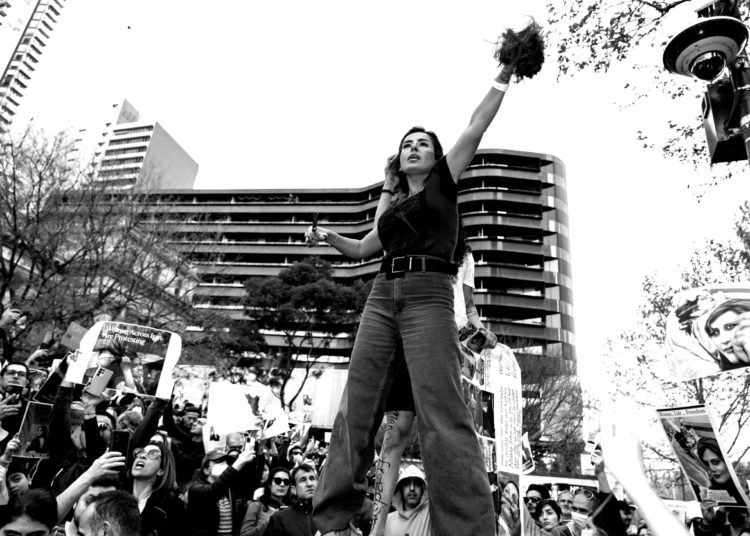“Every day, we left our homes at five in the morning to sprinkle the roads to the mine with grains of corn. The goal was to make the miners who wanted to go back to work and not join the strike, in other words, "the scabs", to turn around and move away from the pit.”

Anita Sirgo remembered this scene, as if it were yesterday, while sitting in the same kitchen where she organized, alongside other women, the great strike of 1962. La “huelgona”, as it is known, was the first time, since the end of the Spanish Civil War, that Franco’s regime was in deep trouble. Today, Anita still lives in the same building of the mining families, in Lada, a village of 500 inhabitants, in the Cuencas de Asturies.
The region became internationally famous because in 1934 a revolutionary general strike, promoted by the Socialists, erupted. It was called The Revolution of Asturies. During the war and the postwar periods, democrats who had to escape to the mountains lived there for years, to work as the main resistance against the dictatorship.
In 1962, while Franco’s regime was working hard to launder its image in the international arena through what he thought could transform into an economic miracle, the price of basic foods such as bread and potatoes rose between 50% and 200%. And in the mines where men, children, women and Republican prisoners worked, the conditions weren’t very different from how they were in the nineteenth century.

“They had no right to even a few uniforms. They used to arrive at night with their uniforms soaked by the water coming from the tunnels. We didn't have time to dry them, not even to put them on the coal stove. The workers had no right to a basic hot shower in a closed and private place after leaving the mine, full of coal,” explained Sirgo who begun her fight for democracy at the age of nine.
At that time, Sirgo acted as a bridge between the Communist Party and the guerrillas who, like her father, survived by organizing resistance in the mountains. She only saw him once without even knowing he was her father. Even today, she still doesn’t know which ditch he was buried in after he was shot. Sirgo’s uncle was also executed, and her grandparents and mother were imprisoned during the postwar period by the Franquists. She is now 92 years old and continues to participate in protests calling for fundamental rights.
The silent strike
It was not the deplorable conditions of the mining industry that triggered the strike. It was actually the suspension of employment and salaries with which the employers of the Pozo Nicolasa (Mieres) sanctioned seven miners who were demanding a raise of their daily salary at the time.
On the day following the sanctions, their colleagues refused to work, and this was how a two-months strike started, spreading first to the mines and steel mills in Asturias -more than 60,000 workers at the time– and, later, to 23 provinces in Spain.

Historians, such as Rubén Vega, author of The strikes of 1962, have found documents proving that more than 300,000 workers from all over the country united for the strike. The New York Times and other international outlets published about this movement as demonstrations in support of the rebellion took place in main capitals around the world. This whole rebellion took place without conveners or slogans, in order to avoid leaks and reprisals. And the so-called 'silent strike' was only possible thanks to the role of women.
"The participation of women was decisive from the beginning. They allowed the strike to reach areas beyond the Cuencas," explains Vega. Anita Sirgo, Constantina Pérez and Celestina Marrón, among others, coordinated the distribution of leaflets among women who hid them under their clothes. They also organized the collection of money and food in shops and taverns that made it possible for thousands of families to resist two months without any income. Even before the strike, they lived on the most miserable subsistence.
“We were very hungry. Fortunately, we enjoyed great solidarity with the stores, which gave us food in credit,” Sirgo recalls. They collected money too for the 120 strikers who were deported to other regions of Spain, to the families of the 198 who were fired of the mine, and to the 356 that were imprisoned in the first month of strike.
"The participation of women was decisive from the beginning. They allowed the strike to reach areas beyond the Cuencas”
“The women did something they hadn’t done in previous strikes: picketing. And they became stronger precisely by playing their traditional gender roles as wives, mothers and housewives, only to transgress these roles. This created a confusion for the Civil Guard because they couldn’t act aggressively with the women they saw in the streets,” explains Vega. “And when they tried to detain one of us, we held on to one another and shouted 'All or none'”, added Sirgo.
Faced with the risk that the strike would spread to other sectors of the industry, Franco sent one of his ministers to Asturies to negotiate with the miners, an unprecedented and exceptional decision considering that the mines were, at that moment, private companies. Finally, the Council of Ministers approved a decision that for every ton produced of coal, they will give 75 pesetas to raise the workers' salaries. But the reprisals would not wait.
In 1963, the regime sent Antonio Cairo Leiva, a new captain of the Civil Guard, to the region to stop any new attempt at rebellion. As soon as he arrived in Mieres, he ordered that Tina Pérez, Anita Sirgo and her husband, also an anti-Franco communist fighter, appear at the police station. The first to arrive was Alfonso Braña. Shortly after, the two women arrived together.
When they were locked up in a dungeon, Sirgo sensed that her husband was in the cell near her. She hit the wall with one of her heels – she bought her first pair for the wedding day and she never went out with flat shoes again. He responded by hitting the wall too. Then began the screams, the crying, the punches. And the women were listening. They received punches and were tortured and pressured to give information. When the torturers got tired of hitting them without getting answers, they shaved their heads, just like the fascists used to do during the Civil War and the postwar periods with their aunts, mothers and neighbors.

After eight days of violence and humiliation, the torturers ordered them to cover their heads with a scarf to be released. They refused. Anita and Tina came out with their heads high and shaved. Sirgo had lost his hearing in one ear and Pérez died two years later as a result of the diseases he suffered because of the violence he endured in prison. Sirgo could not attend his funeral because the Communist Party had forced her into exile in Paris after she threw a heel at a Civil Guard in a protest.
“There, some comrades taught me how little I knew from reading and writing. At least now no one can fool me anymore,” said Sirgo. Two years after her exile, she returned to her home "because the exile was worse than being in prison, far from my daughters and my husband.”
It is a pity that, for decades now, in tributes and meetings, comrades and members of the Communist Party keep forgetting to recognize the women who guaranteed the necessary conditions that allowed this historical rebellion. The women who knew the power of the act of sprinkling corn on the ground. Ironically, in Spain, cowards are called chicken.































